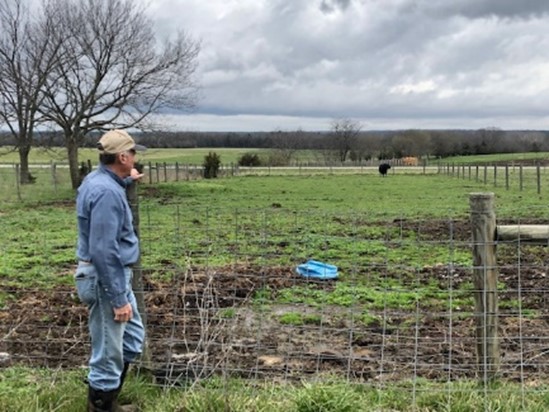Located at the geographical center of Virginia is the Ellis’ family farm. For more than a century the family has been raising cattle, hogs, and crops at their home and farm at Mt. Rush. Today, their agriculture operations include about 300 head of purebred angus cattle and farming approximately 200 acres for hay and corn for feed. Randy Leech, husband of Irene Ellis Leech, and mother-in-law Irene Ellis continue to carry on the Ellis family legacy at Mt. Rush Farm.
A little more than 30 years ago Buckingham County farmers and members of the community began discussing the use of biosolids as a nutrient rich fertilizer. “We did a great deal of research and talked to a lot of people,” Leech said. It was the farm’s manager who decided to start using biosolids that at the time was generated at the Washington, DC advanced treatment plant, now referred to as DC Water. That initial use converted several farmers who had been sitting on the fence. These farmers found that biosolids improved the health of the soil while enhancing productivity.
Biosolids increase plant growth by providing nitrogen, phosphorus, potassium, zinc, and other nutrients critical for healthy plant growth. Applying biosolids as fertilizer allows them to be recycled for a useful purpose rather than disposal in landfills or incinerated. “The beneficial recycling of biosolids is critically important for people to be aware of,” Leech said. The recycling of biosolids on farmland is a highly regulated process to ensure quality and safety, yet a natural, sustainable process to apply highly treated waste to the earth in a beneficial way. “We continue to be vigilant on the content and quality of the biosolids we receive.”
“Biosolids also serve as an alternative or substitute for expensive chemical fertilizers,” Leech said. This is especially important with the ever-increasing cost of fertilizer and inputs. One goal of Leech is shifting to growing more grazing-based feed and less hay. When it comes to feeding pastures, expenses can be lowered with the use of biosolids as an alternative to costly chemical fertilizer options. In addition, the reduction of required labor ultimately leads to “a more profitable operation”, said Leech. Profitability and sustainability together make a successful farm operation, he said.
When asked what most rewarding about the work is that the Ellis family, Leech points to the pastures, rolling hills and angus bulls and heifers in front of him. “This right here; watching the cattle grazing and the crops growing – if you take care of it (cattle and crops), it will take care of you in return,” he said.
